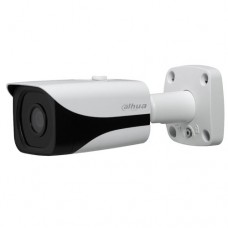Edinburgh and the Lothians
0800 0029691
Freephone

CCTV Systems
Get a Home or Business CCTV System at a Low Price Today. Get a Quote
HD CVI CCTV Systems
A typical system consists of between 1 and 4 HD CCTV cameras and a 4 Channel Digital Video Recorder. Cable, 4 Baluns 1 to 4 Power Supplies and all necessary equipment for a working system and Includes connection to view on your mobile phone.
Installation will normally take between 1 and 2 days depending on the cable runs. The cables can be run inside or outside the property as long as they are out of reach. Running cables outside is usually a lot faster than inside the building saving money on installation costs.
The system can be viewed on an existing TV with a spare HDMI or VGA connection or a dedicated monitor.

hdcvi fixed focal length external cctv camera. designed to be used outside on walls giving a general field of view

hdcvi varifocal length external cctv camera. designed to be used outside on walls giving a variable filed of view and has a motor zoom lens to allow remote adjustment of zoom control

hdcvi varifocal length bullet type external cctv camera. designed to be used outside on walls giving a variable filed of view.

hdcvi PTZ pan tilt and zoom fully functional camera generally used on larger type commercial cctv systems. Mostly used in facilities where an operator is controlling a system with a joy stick controller.

hdcvi DVR Digital Video recorder. these recorders come in various sizes starting at 4 channel up to 64 channels and can have variable amounts of hard drive space for longer recording times. In most cases to store video for 1 month

View of fitted camera
Mobile phone image of CCTV Cameras field of view

The Laws Relating to CCTV
The main laws governing the installation and use of CCTV is covered by the Data Protection Act 1998, but this only applies to businesses and organisations and NOT to domestic property. It’s crucial that people recognise that distinction. If you’re concerned about a company’s use of CCTV, that’s a matter for the Information Commissioner’s Office (ICO) to deal with under the statutes that have been laid out under the Data Protection Act.
Is it Legal?
Yes, it is perfectly legal as long as due care is taken. Most people who choose to install CCTV at home do so primarily to deter would-be intruders from trespassing onto or breaking into their homes, and this is completely legitimate.
You cannot stop your neightbour from installing a CCTV system or from operating any kind of video recording device, such as a camcorder. For example, Using CCTV At Home can often help police secure a conviction for crimes that have been committed, such as a theft of a car parked outside your home or to identify individuals who are engaging in Anti-Social Behaviour.
That said, in such cases, the CCTV system you might have at home is more likely to act as a deterrent. This is simply because in a residential area would-be criminals are likely to be far more aware of residential CCTV installations, and so are more likely to avoid doing anything which might contravene the law.
In cases of people who are able to provide video evidence of crimes or acts of anti-social behaviour being committed outside their own homes, that will usually come about as a result of some covert filming using a camcorder or digital camera.
When you could be Breaking the Law for Having CCTV at Home
While home installation of CCTV does not fall under the jurisdiction of the Data Protection Act, if the home installation has not been carried out correctly or is being used for a purpose other than for which it was designed, then you may have a case for taking further action under totally different laws.
For example, if you have a camera which is pointed directly at another person’s property or it’s suspected that it can capture part or all of a neighbour’s property, they might have a case to take action against you under legislation covered by the Human Rights Act. They might have sufficient grounds to say that they have had their privacy violated, that your CCTV system is tantamount to harassment and even voyeurism.
In such cases, they can get the police involved if you're not able to come to some agreement with regards to what the camera(s) can capture and to make modifications to the installation, if necessary.
Privacy Zones
In cases involving cameras that may overlook your neighbours property we can provide privacy zones on these cameras electronically at no additional cost. This means that we can block out areas that the camera sees and we blank it off so as not to see into windows or gardens.
iFM Systems is a Trading Name of iFrame Media Ltd Registered in Scotland in 2002 Company Registration Number SC228147